By Žikica Milošević
Diplomacy & Commerce magazine, in each issue, among other things, represents the diplomatic corps, as well as everything that happens in the diplomatic community in Serbia. Now we also want to show our readers where the former ambassadors work and what they do. In this issue, we present the ambassadors of two countries or entities: UNICEF and Germany. We asked them what they did after leaving Belgrade, what they miss the most from Serbia and how much the pandemic has changed diplomacy and the daily life of a diplomat.
- What have you been doing since you left Belgrade?
- What do you miss the most from Serbia?
- How much has diplomacy changed in the conditions of a pandemic and as well as the everyday life of a diplomat?
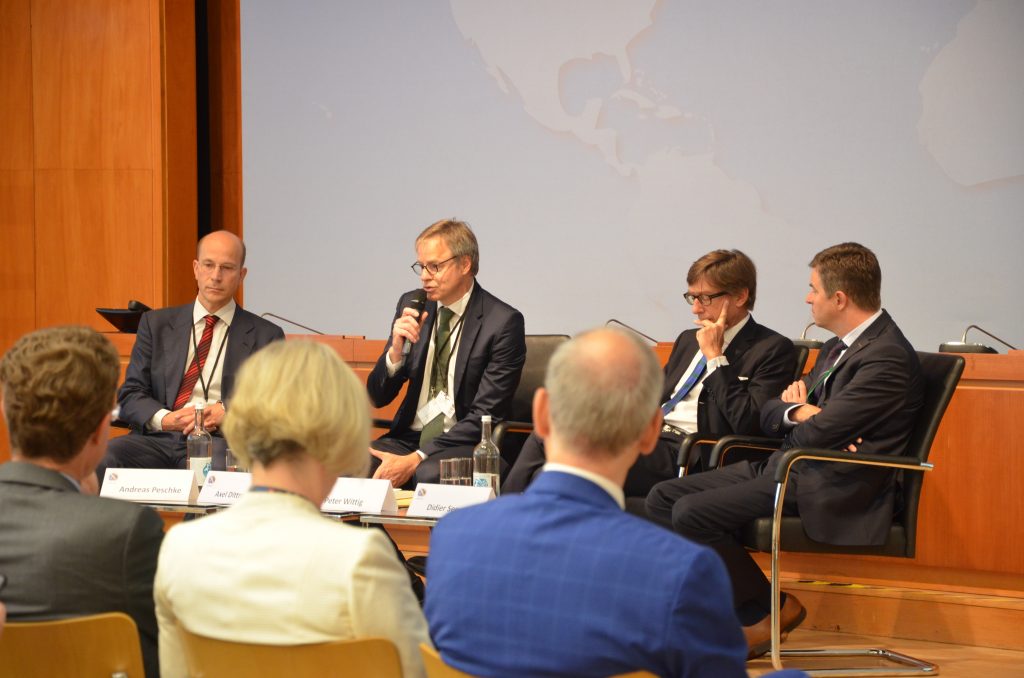
H.E. Axel Dietmann, Federal Foreign Office, Berlin, Germany: Missing weather, food, music and extremely friendly people
1.My family and I left Belgrade in July 2018 after spending three wonderful years in Serbia. We have all returned to a busy life back in Berlin. I am back in the Federal Foreign Office, where I am responsible for EU institutional affairs; I have worked in particular on coordinating our positions in the Brexit negotiations and on preparing our EU Presidency. My wife Natalie is back working on various scientific projects at the Charité University Hospital and our kids are all complaining about too much work at school…
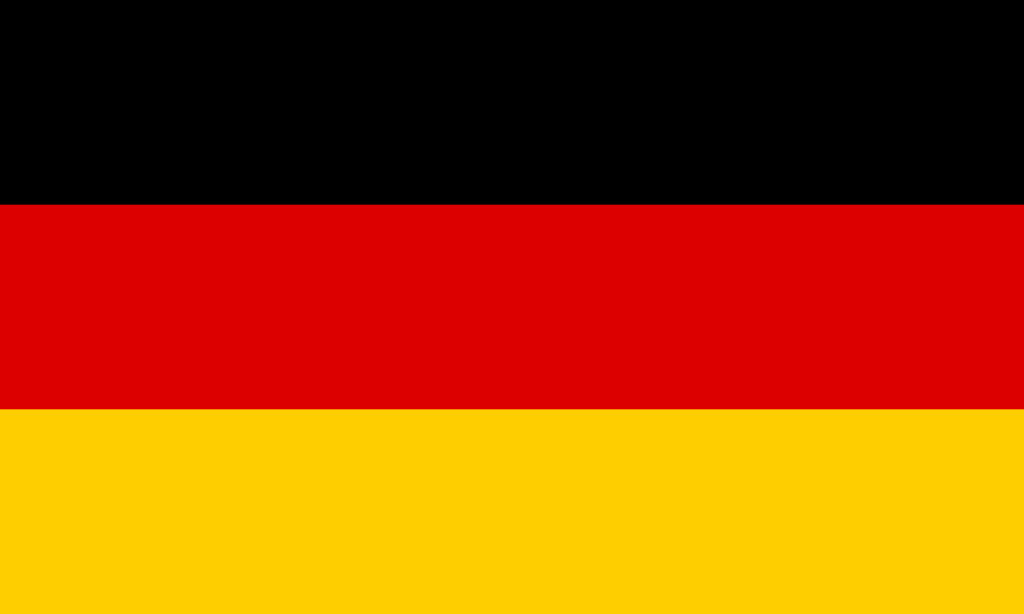
2. We all miss Belgrade! We miss the great city (although we love Berlin, of course), the extremely friendly people, the great food and music, the exceptional hospitality, and the better weather (the early springs and the long autumns…). And I miss Basketball at Hala Pionir (the arena in Berlin is very quiet in comparison!). I am still following the political development and am still hoping for faster progress of Serbia towards the EU.
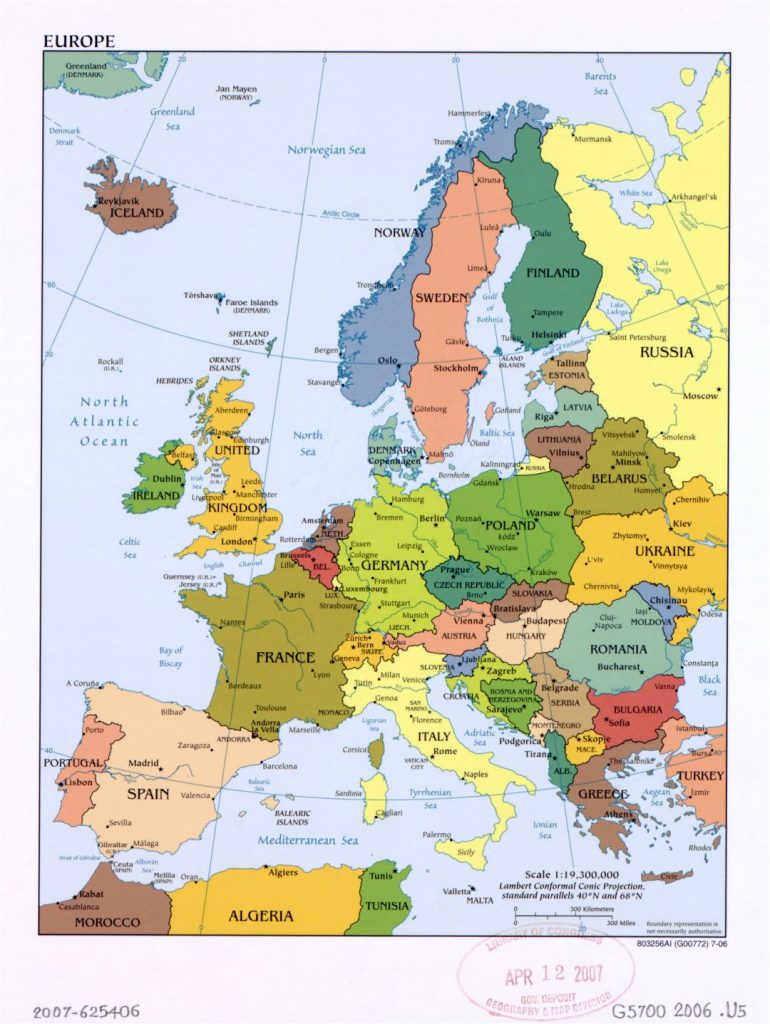
3. I think our job has been impacted enormously, as travel and contacts with other people are at the center of our profession. In preparing for our EU Presidency, we had to (literally speaking) put all our preparations into the bin and begin all over again three months before its start last July. However, I believe much more important than restrictions for our job has been the impact of this pandemic on our private lives, on our families, without the possibility to meet friends and loved ones. So let’s hope we will be able to jointly overcome this situation as fast as possible and that my family and I can visit Serbia again soon!
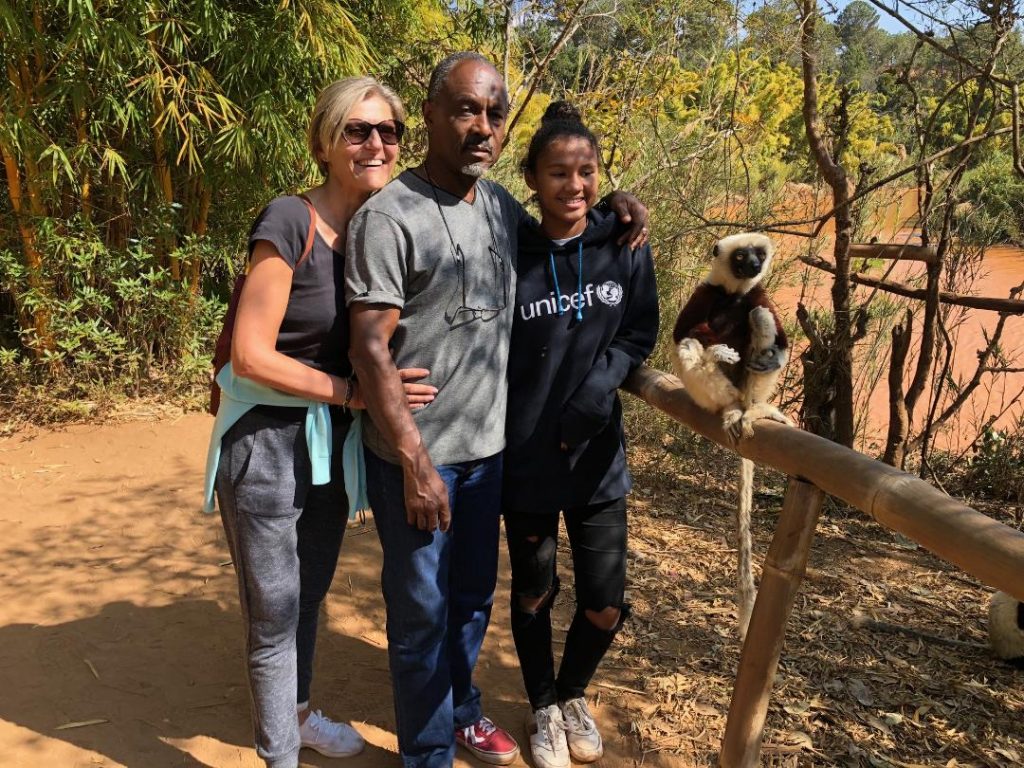
Michel Saint-Lot, UNICEF Representative in Madagascar: We are Contemlpating Buying a Flat in Belgrade!
1.A new journey with different challenges – In Serbia, I was in a Middle-income country where our main focus was advocating for reform, supporting the strengthening or reforming of existing systems to improve efficiency and effectiveness of basic and social services for the benefit of all. In Madagascar, the challenges are very different and complex. Since taking up my assignment in August 2018, we have had to respond to the needs of hundreds of thousand of people affected by poverty, an inexistant social protection system, chronic malnutrition, floods, hurricanes, droughts, epidemics such as the plague, measles and now Covid, in an environment where the financial assets are far below those of Serbia. As I respond to this interview, we are working hand in hand with the national authorities and development partners to assist 1.2 million people affected by an 18-month-ling drought in southern Madagascar where people are in dear need of water and basic food for their mere survival. A situation that reminds us of all our “raison d’être” as Unicef and to not leave anyone behind.
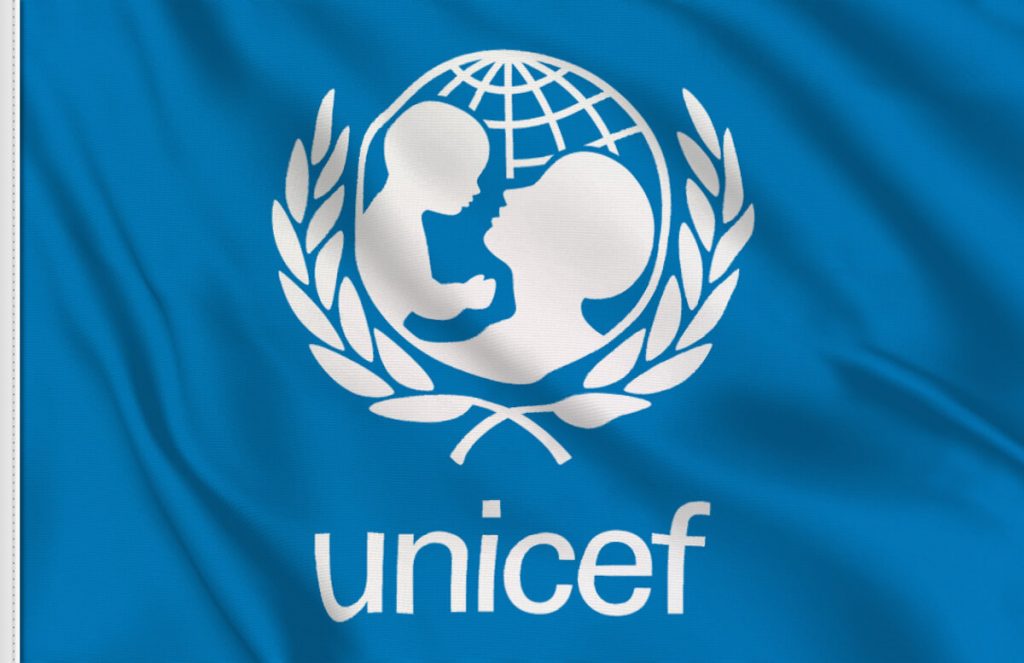
2.The short answer is that we are contemplating getting a flat in Belgrade and making it our second home. Why Serbia? A country of proud and loyal people open to a friendship that welcomed me and my family. In my first encounter with then-president Tomislav Nikolic, when asked where I was from, I answered (I’m known for my tendency to jest with everyone) that my Father was from Novi Sad and my mother from Pirot. A joke I used often, during our five years in Serbia, and the laugh and reaction I always received truly made me feel that I was welcome.
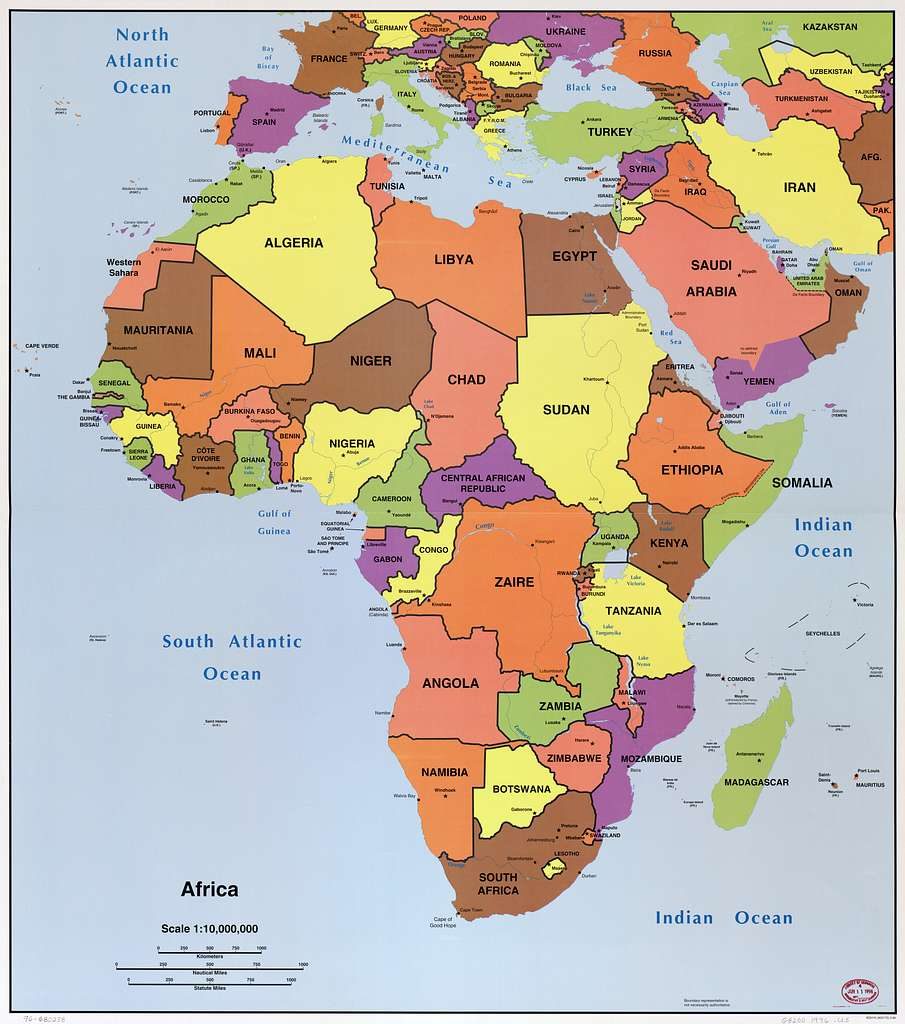
Before taking my assignment in Serbia, I was told by many that I would encounter a lot of racism. Truth is, we found kindness, a people proud and loyal in their friendship and generosity, ready to share even in remote poor villages. I do miss my former office team and colleagues, the friends we made over our half a decade in Belgrade like Robert and Žikica of Diplomacy and Commerce, the supportive hands of Sasa Djordjevic, Novak and Jelena Djokovic, Ana Ivanovic and her parents Misa and Dragana, to advance UNICEF work for the vulnerable children in Serbia. I do miss the vibrant, noisy Kafanas blasting folk song of Yugoslavia era, like Goran Bregovic songs, (though I had a hard time with the heavy smoking.). My usual lunch at Mali Paris, just 50 meters from my office, and the chatting time with the owner Bata, who unfortunately is no longer with us (RIP). We have the fondest memory of our last family diner at the iconic Belgrade restaurant “Frans” for my wife’s birthday, a few days before the family left Serbia, The smell of Cevapi and the taste of ajvar, prebanac and the inexpensive but good wine. The yearly outstanding dance festival of Aja Jung, the guitar festival of Bisko Radojkovic, the Belgrade opera where we had the opportunity to enjoy many productions, though we missed the performance of primadonna Jadranka Jovanovic. The Sunday afternoon in Zemun along the Danube or the bicycle rides at Ada or enjoying a freshly baked thin crust pizza with our youngest daughter at Via Piano (her favorite place). Strolling at my father’s place Novi sad and my mother’s home town, Pirot. Traveling through a green Serbia. Our Tango lessons at Tango Natural with Darko, Sonja, and the rest of their wonderful kind and beautiful-spirit team – in particular our patient and wonderful teachers Nevena, Lukas and Aleksandar. Too many good memories to give a ranking order. My wife and daughter went back vacationing in Belgrade for a week, a year later, in 2019, and would have gone back in 2020, but for the pandemic situation. Our Serbian cat, now 3 years old, is an everyday reminder of the many beauties of Serbia.
3.The diplomatic events around National holidays have shifted from friendly and joyful evenings to mostly Video celebrations without the warmth and friendly chit-chat in elegant atmospheres. But the pandemic has created a stronger bond to face together adversity, to face a virus that is so democratic that it does not differentiate the poor and the rich, the common people and the powerful, be presidents or diplomats. Though Nations that have vowed solidarity have behaved selfishly, using their purchasing power. In Madagascar, where quality healthcare is a real challenge, the diplomatic community, much smaller than the one in Serbia, behaves as a united team where everyone looks after each other’s well being and truly demonstrates the duty of care for the people we are to be serving and supporting in the spirit of leaving no one behind. The pandemic is teaching so many lessons, and I sincerely hope that we will learn from them and not forget the fragility of humankind in an environment that we have neglected, abused and endangered. May I wish us all a happy and more serene 2021, a year to regain our faith in humanity.